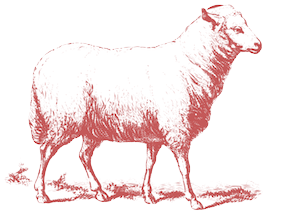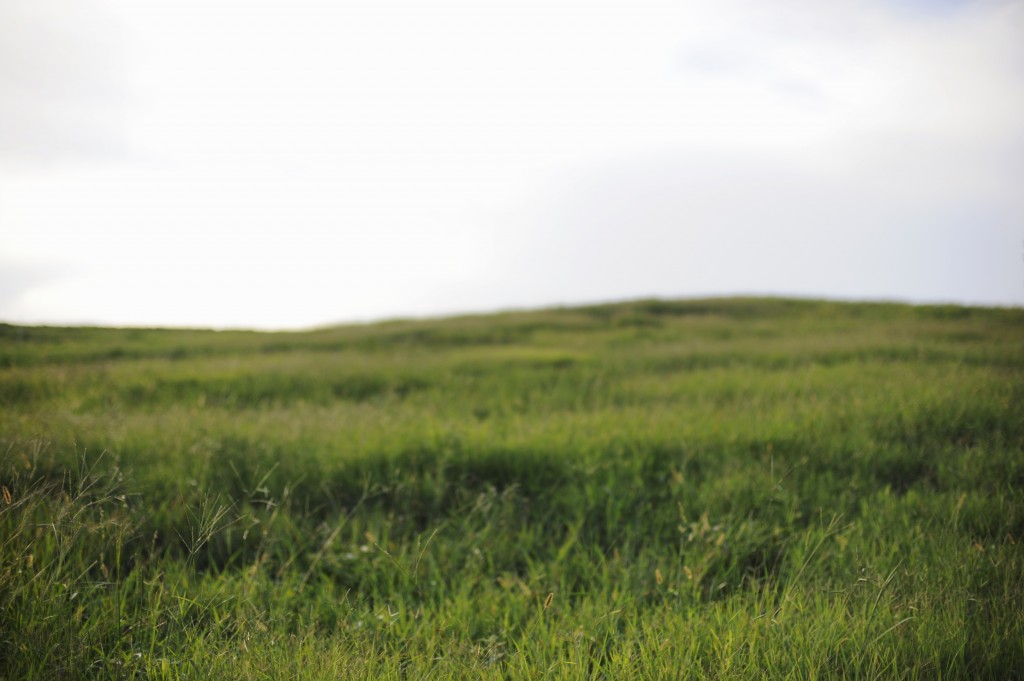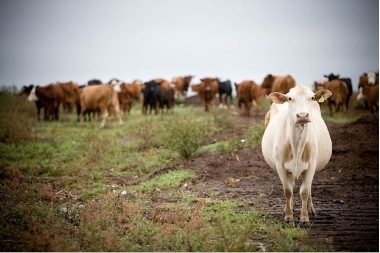(Editor's Note: while I'm not typically known for wearing my politics on my sleeve, I felt the need to offer some of my impressions of the GA Agricultural Commissioner candidates; it's an under-sung office up for grabs in the ever-under-sung mid-term election cycle that is pretty important for farmers of all shapes and sizes. It is my hope simply to bring attention to this election and to use my opinions to get folks thinking about this particular office. It is not my aim to sway anybody towards or away from a candidate. What follows are my own impressions, which I hope are useful to you. If not, pay them no mind. Either way, I urge you see the candidates for yourself.)
About three weeks ago, I had the opportunity to attend a debate between the three candidates for Georgia's agricultural commissioner. This is kind of a big deal. The office of Agricultural Commissioner in Georgia has not changed hands in more than 40 years, but now, Tommy Irvin is stepping down from his perennial incumbency and three new gentleman are vying to take his place: J.B. Powell, Gary Black, and Kevin Cherry. These men played to a packed house. Apparently there were over 600 RSVP's to the event, making it the largest political event so far in this election season, further disarming the credibility of arguments that suggest organics and sustainable food is a "hippie/yuppie fad." If these politicians learned nothing else that night, I hope they learned from the attendance level alone that we are a very real group of the voting citizenry and must be taken seriously.
As for the candidates themselves, here are my impressions:
Gary Black: Mr. Black has both tremendous agricultural and political experience. He appeared to be a competent candidate, with a firm grasp on a number of issues and practical and pragmatic approaches to handling them. I feel fully confident that he understands how to move within the political arena to get things done. However, I question exactly what he would do. He offered to support the economic development of local agriculture by doing things such as devoting a section of the Georgia State Farmer's Market in Forest Park exclusively to local and organic producers. While this change would be nice, it is a mere token. Very few consumers of local foods even know the State Farmer's Market exists, much less shop there. The real business for local producers lies in supporting and creating new local farmer's markets, developing relationships with institutional providers such as hospitals and schools, and facilitating efficient means distribution throughout the State. Bolstering an already flimsy existing institution felt like being tossed a few crumbs.
Black also suggested that small-scale, on-farm poultry processing needed "more research" to deal with potential environmental and sanitation hazards. This was a red flag for me. While I do agree that small-scale processing is in desperate need of research (there's hardly any out there), assuming that the hazards of processing 1 million birds can be related to processing a mere 1000 is absurd. Anacdotally, on-farm processing at a small-scale level has virtually no environmental hazards and is generally much better in terms of food safety. I would have preferred to hear a plan for generating research in this area, perhaps lead or supported by the Commissioner's Office. For me, what was underwritten in Black's comment was concern for the protection of Georgia's largest agricultural commodity: chicken. If on-farm, small-scale processing is found to be as safe or safer, how would that make Georgia's big Tyson farms look? Frankly, anyone who thinks that it is not the job of the Agricultural Comissioner to protect those poultry houses is deluding themselves. It is and will be for some time. What is important is that whoever is elected is forward-thinking enough to support activities that may or may not change the status quo in the future; indeed, to give the underdog a chance to show its worth rather than silencing it. Black's comment that more research is needed with no caveat to support such research I read as a deflection more than a real answer.
During the course of evening, Black's history of support for big agriculture became clear along with a temperament I found reprehensible. Black has headed the Georgia Agribusiness Council for the past 20 years and through this organization has lobbied for the interests of big agriculture in Georgia. While there is nothing outwardly wrong with such activities, his involvement in this organization shows a certain proclivity towards the interests of big agriculture that leaves me wondering, along with his other lackluster offerings to the local organic agriculture community, if he is seriously interested in lending an ear to our cause.
What is outwardly wrong with Black's involvement with the GAC are the allegations of ethics violations, specifically tax fraud during his tenure, which Black has not been able to sufficiently put to rest. While these allegations are cause for concern, what alarmed me the most what when candidate Kevin Cherry brought up Black's involvement with GAC and questioned how someone who was a lobbyist for big agriculture could reasonably address the needs of small-scale local producers. Black responded by asking the audience if they knew Alice Rolls, the founder of Georgia Organics. He then asked the audience if we knew that Ms. Rolls was also a lobbyist. His self-alignment with Alice Rolls drew huge applause from the folks wearing Black buttons in the audience. It drew a loud hiss from me. This rhetorical slight of hand was a textbook example of a red herring with a particularly dexterous division fallacy embedded within it. The comment was a red herring because it simply failed to address Cherry's question and redirected it down a different path. Cherry asked how Black's affiliations with an organization that lobbied for agribusiness would affect his ability to vouch for small producers. It is not at all clear how the fact that Alice Rolls is also a lobbyist is relevant to Black's ability to vouch for small producers. Black's division fallacy within this red herring I found particularly offensive. Black's comment equates himself as a lobbyist with Alice Rolls, who is also a lobbyist. The comment does not account for the fact that not all lobbyists lobby for the same cause. To say that Alice Rolls, who lobbied for the benefit of small, organic farms is the same as Gary Black, who lobbied for large-scale agribusiness on the basis that they are both lobbyists is asinine and frankly, I found it insulting to the work Ms. Rolls has done on behalf of small, organic producers.
Kevin Cherry: Cherry was far and away the biggest crowd pleaser. From the moment he opened his mouth, I knew he would be making a lot of friends in the room that night. He was very clear about the need to change agriculture in Georgia; to move away from agribusiness and towards small-scale, local production. His very first sentence was, "The era of corporate, cheap oil, chemical and fertilizer-based, steroid and anti-biotic based farming is over." Yep, he was singing our song. As the libertarian candidate, Cherry took the textbook libertarian stance, clearly against what he called "government subsidies and interference in the market." I listend to him with rapt attention. Was he serious? Was there really an agricultural commissioner candidate that was sympathetic to the cause of small-scale, sustainable production? I wanted to get up and cheer with the rest of the audience, yet something held me back. What was his plan for achieving these goals? How would he convince the Tyson farmers that smaller is better? How was he going to get Georgia cattlemen to stop sending their steers to feed lots in Nebraska? How was he going to help increase the market for Georgia-grown produce? I waited. I listened. No real answers came. It seemed, to my disappointment, that once I heard Cherry's initial, very exciting statements, I really didn't hear a lot more. Sure, he was able to address nearly every question that came his way intelligently; he offered great ideas, such as to privatize inspection of food processors (as an aspiring dairywoman, I would love to see inspectors come into my facility who have actual expertise in what a cheesemaking plant should look like and run like as opposed to someone who has simply read over the regulations and arbitrarily enforces them, but that's a whole other article for another time). He also offered some horrible ideas, like the privatization of water (which has been tried and is one of the fastest ways imaginable to put a farmer out of business).
Overall, I loved what Mr. Cherry had to say, but I couldn't agree more with Mr. Black when at the end, he asked Cherry directly, "You're elected tomorrow, what's the first thing you do?" Embedded in this question was the skepticism I too was feeling about the reasonability of Cherry's goals. While Cherry initially addressed the question strongly with talk of a need to analyze the rules and regulations within commissioner's office and to develop a plan for dealing with the complex issues around the budget crisis, he quickly entered murkier waters, saying he would then "get with the legislature" to develop a plan to change the priority of the Commissioner's Office from one supportive of agribusiness to one that is supportive of small, local producers. I just shook my head. Don't get me wrong, I loved what Cherry says here, but he's talking about a sea-change in Georgia's approach to agriculture. "Getting with the legislature" to affect this level of change is a tremendous undertaking, and one that Georgia's agribusinesses would fight tooth and nail by also "getting with the legislators." Frankly, I'm not convinced Mr. Cherry is fully capable of this formidable task. Why? Not only did he lack in providing sufficient evidence of a plan to achieve his goals during the debate, but I am unsure that his background would serve him well in a political office, particularly in agriculture. His biography on his website reads:
I am originally from Florida, born in Miami and raised in Jacksonville, Florida. I moved to Georgia in 1983 and settled in Douglas County in 1986. Agriculture has been apart of my life since I was a lad. My father worked in the citrus fruit industry for 25 years and my uncle was a commercial vegetable grower in Asheville, North Carolina. I am a former Army Signal Corpsman, Honorably Discharged in 1981. In 1987 I got involved in dealing with Food Safety and Public Health issues as a Certified Pest Control Operator, and I haven’t looked back since. Currently I hold certifications in Georgia and all surrounding states. In Georgia I hold the Public Health Pest Control Certification. Currently I am the Technical Director for Trutech Pest and Animal Removal Inc. of Marietta, Georgia.
I am the Chairman of the Douglas County Libertarian Party affiliate, a former member of the State Executive Committee, and was the Libertarian candidate for Public Service Commission District 5 in 2006.
Cherry has minimal expirence in agriculture. He runs a pest-control business and ran a mere two years ago for the Public Service Commission, whose mission "is to exercise its authority and influence to ensure that consumers receive safe, reliable and reasonably priced telecommunications, transportation, electric and natural gas services from financially viable and technically competent companies." Which leads me to ask, what in the world does that have to do with agriculture? And, more importantly, if Mr. Cherry wanted to be on the Public Service Commission, why does he now want to be Agricultural Commissioner? Something seems odd here.
I can only surmise (and somewhat cynically, I know) that Cherry's primary interest is not in agriculture, but is in the Libertarian Party, which often employs a political strategy of "get elected into any office you can in order to give the party more legitimacy." My interpretation of Cherry's motivations here, leads me to believe that while at the debate, he was making a huge appeal to pathos, the rhetoric of emotions. Cherry knew his audience would be made of GA Organics members and those sympathetic to its politics. Nowhere else save for this debate, can I find Cherry making such sweeping comments about small-scale, local agriculture. All this leads me to understand Mr. Cherry through the age-old warning: if it sounds too good to be true, it probably is.
JB Powell: Powell is the Raw Milk Man. The one comment the whole night that got my enthusiastic applause was when I heard Mr. Powell say that he would work to legalize the sale of raw milk in Georgia. If I were a single-issue voter, Powell would have had my vote right there. Oddly, apart from his comment about raw milk, I have a great deal of difficulty remembering anything else about him. In point of fact, what struck me the most was that, at the end of the debate when the candidates could ask questions of each other, no one asked Mr. Powell a single question. It seemed that both Powell and Cherry were aligned in attacking Mr. Black, and Mr. Black only fired questions to Mr. Cherry. Clearly, both Cherry and Black did not find Powell particularly threatening, or else they would have drawn attention to him. This troubled me. Why were his opponents so unthreatened?
Powell's biggest point, which he made multiple times over, and over, and over again was to use existing institutions, particularly in the University System to expand and legitimize the market for local products. Indeed, this seemed to be the blanket solution for the first few questions posed to Mr. Powell, including a question regarding the difficulty in legally processing pastured poultry, for which there is already an underserved market. How expanding the market for a product that farmer's can't easily process in Georgia will help farmers meet their demand is beyond me!
What I find most interesting about Mr. Powell is what he chose to omit during the debate. One of the cornerstones of Powell's campaign is his push to legalize horse racing in Georgia. It's the second major issue point on his website after food safety and he regularly mentions the notion in the press. However, horse racing is an issue that is not even under the jurisdiction of the Department of Agriculture. Powell makes the claim that legalizing horse racing will provide a boost to Georgia's economy, but given recent declines in the financial feasibility of horse racing, even in Kentucky, I'm not so sure. Bizarre though I find Powell's stance here, I found it plenty more odd that nowhere in the debate did anyone, including Powell himself, mention this issue. Why not? If he really believes that it is a legitimate solution, or that this idea can at least help Georgia's overall agricultural economy, than why not say something about it? And, moreover, why didn't one of his opponents bring it up during the last round where they could question each other? It's just plain strange.
Be that as it may, I did find that Mr. Powell and Mr. Cherry were often aligned in their goals and philosophy but my eyebrows raised less often by Powell. He at least seemed more pragmatic in his comments and, being himself a life-long farmer and member of the State Senate, I find his motivations for seeking the post of Agricultural Commissioner more legitimate. But on the whole, I am afraid he is a fairly weak candidate. While he is certainly more amicable than Mr. Black and more pragmatic than Mr. Cherry, nothing about him strongly stood out. No one wanted to argue with him, and apart from his statement about raw milk, little he said was memorable or engaging. While the other candidates ran hot and cold, Mr. Powell stayed quite tepid. And it's hard to rally around tepid.
So, who am I voting for? Honestly, I wish I could vote for a hybrid of all three. There are things I find unacceptable in all three candidates and there are things I really appriciate and admire about all three candidates. I want Black's pragmatisim and political connectedness, Cherry's idealism, and Powell's moderateness.
Who do I think will win? Gary Black. He's a strong candidate that folks can clearly rally behind, he's got loads of experience both politically and agriculturally (as well as in the meeting of the two), and while he would be fresh blood in the office, he's not hugely different from Tommy Irvin in terms of policy. He represents a slightly shifted status quo, is a Republican candidate in a Republican state, running for an office that not many folks apart from predominately conservative, rural farmers care much about. Steve Nygren, who is working hard on behalf of sustainable small-scale agriculture down here in Chattahoochee Hills asked me if I thought Black could be educated about our cause. Honestly, I don't know. I'm glad that whatever happens, there will be fresh blood in the Agricultural Comissioner's Office, which is always more pliant than a 40-year old, ensconced tradition of more of the same. I think it's worth trying, and it certainly is not going to stop me or anyone I know from farming the way we do.



